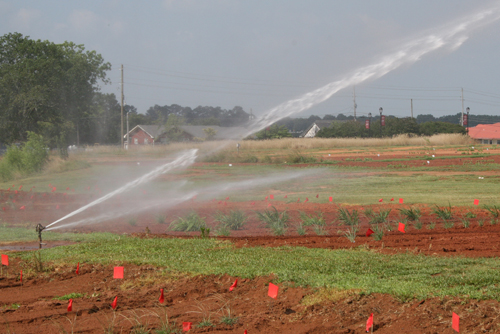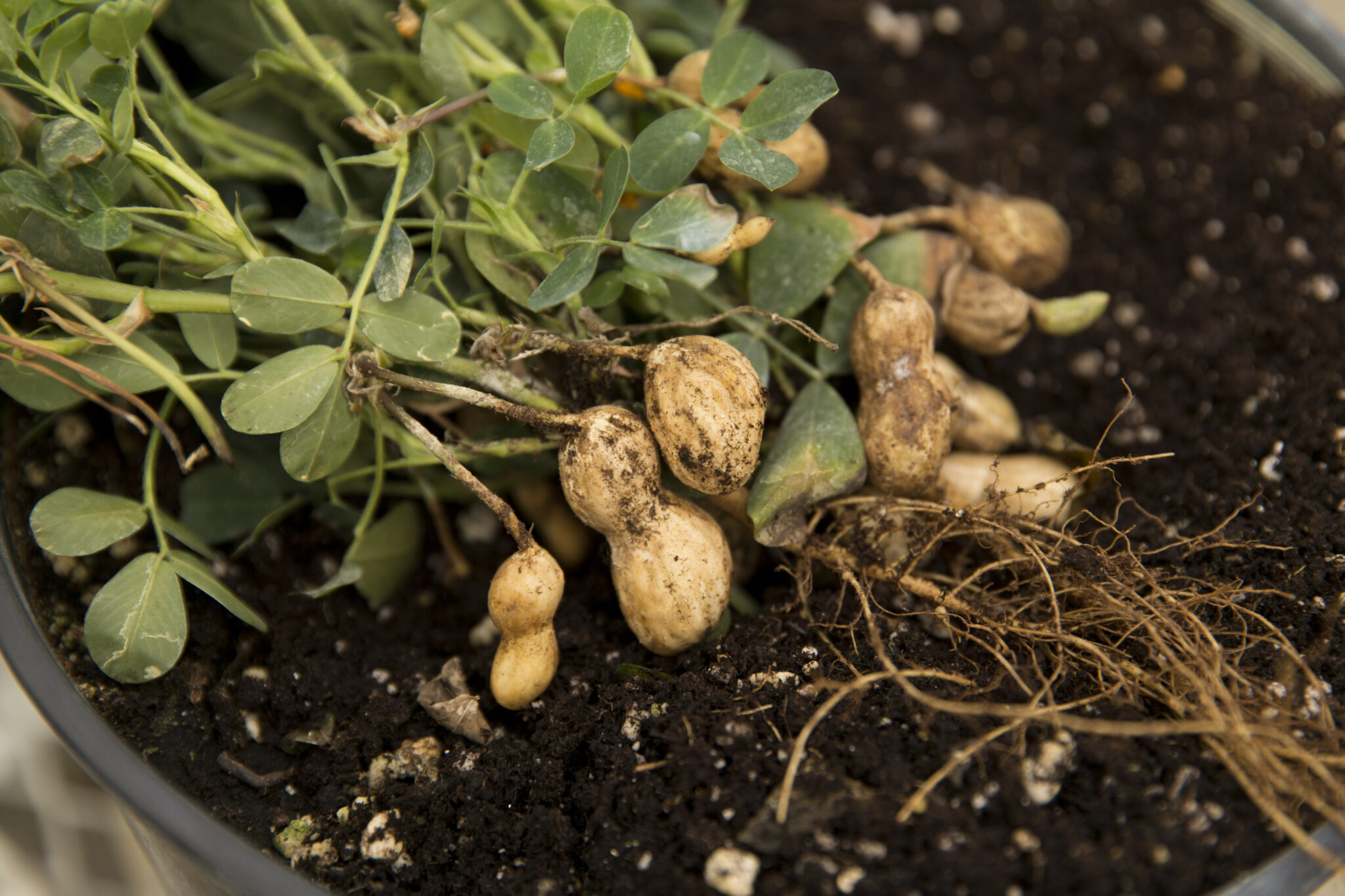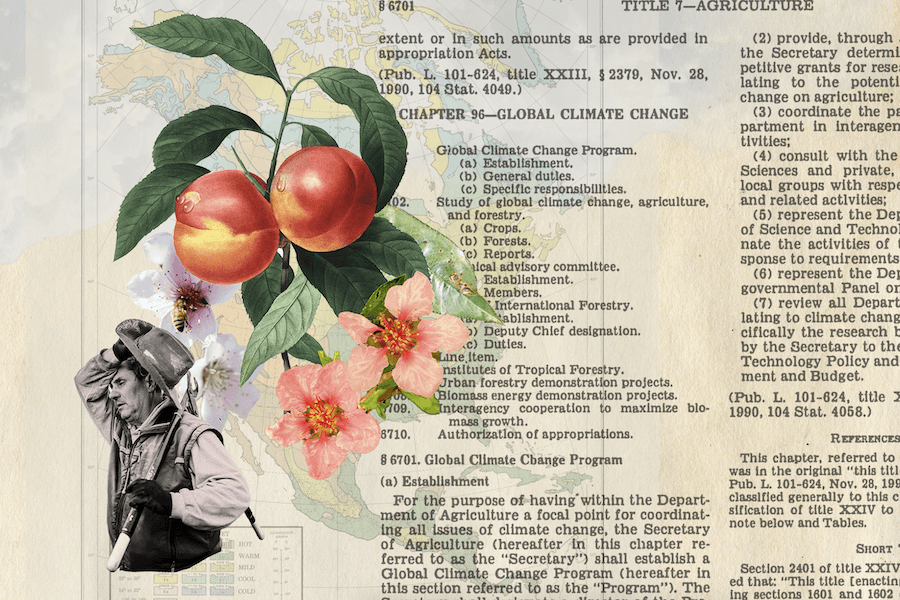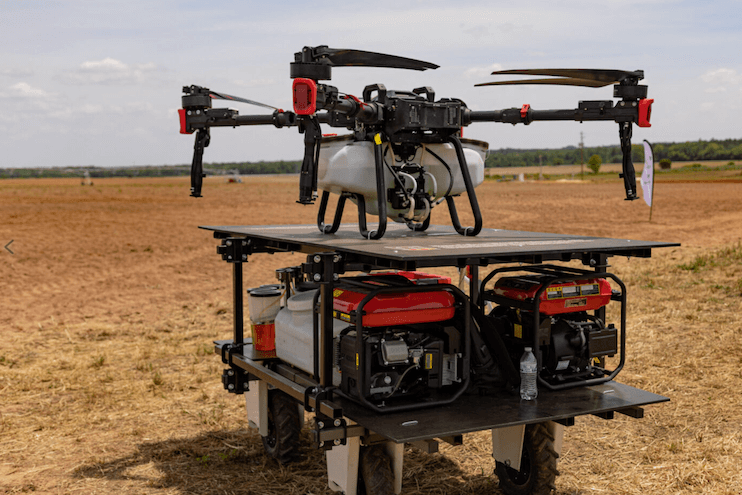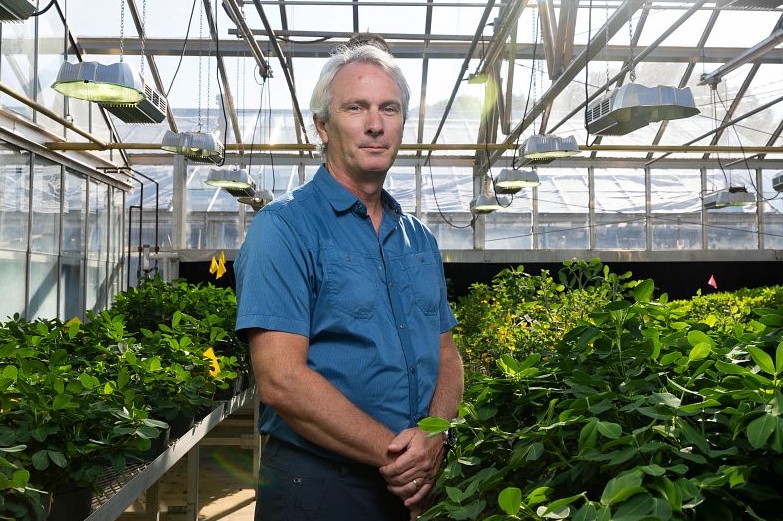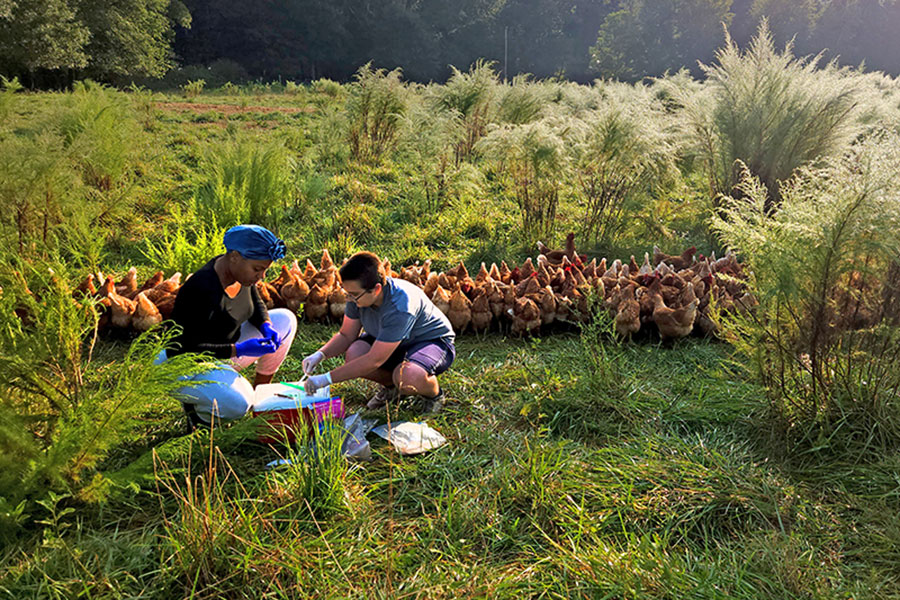New watering rules give Georgians more flexibility in their watering habits. Effective June 1, they can now run automated irrigation systems, lawn sprinklers or water by hand daily as long as they do so from 4 p.m. until 10 a.m.
Under the Georgia Water Stewardship Act (SB370), the new rules state that outdoor water can be applied daily during the specified hours for the purposes of planting, growing, managing or maintaining ground cover, trees, shrubs or other plants.
What is called gray water or reclaimed waste water can be used any time for irrigation. Water from private wells or surface water used by the owner or operator of such wells or surface water is also allowed any time.
Water can also be applied with no time or day limits for the following outdoor uses:
- Agricultural operations.
- Personal food gardens.
- New or replanted plant, seed or turf in landscapes, golf courses, or sports turf fields during installation and for a period of 30 days immediately following installation.
- Drip irrigation or soaker hoses.
- Hand-watering with a hose with automatic cutoff or handheld container (including chemical applications).
- Horticultural crops held for sale, resale or installation.
- Athletic fields, golf courses or public recreational areas.
- Installation, maintenance or calibration of irrigation systems.
- Hydroseeding.
The odd-even day schedule remains in effect for nonlandscape outdoor water use like pressure washing by homeowners, car washing at home or for charity, hosing driveways, outdoor cleaning or topping-off pools.
Even addresses may water on Monday, Wednesday and Saturday. Odd addresses water on Tuesday, Thursday and Sunday.
Even though Georgia’s drought is in the past and the water restrictions have been loosened, University of Georgia Cooperative Extension experts encourage homeowners to keep a water-saving mindset.
“During the summer months, outdoor municipal water use increases between 30 to 50 percent,” said UGA Cooperative Extension turfgrass specialist Clint Waltz. “Most of this is from outdoor uses like filling swimming pools, washing cars and watering lawns and landscapes.”
To conserve water, Waltz offers homeowners the following tips:
- Select plants that match light conditions and require less water.
- Match surface and soil drainage conditions to plant moisture requirements.
- Choose plants that grow well in your area.
- Preserve established plants. They have an extensive root system and require less water than newly planted ones.
- Space plants with their mature size in mind to reduce competition.
- Concentrate seasonal color in small, high-impact areas to reduce overall water requirements.
- Avoid constructing raised beds under trees due to root competition for water.
- Develop a landscape plan before designing an irrigation system.
- Incorporate shade trees in the landscape to reduce evaporative water loss.
- Select and group plants according to their water needs.
- Divide the landscape into water-use zones. Avoid small, irregular-shaped island plantings in turfgrass areas. They are difficult to irrigate.
- Consider irrigation sprinklers when designing turfgrass areas or planting beds.
- Move or eliminate plants not suited to existing site.
For more information, contact your local UGA Extension office at 1-800-ASK-UGA1.

